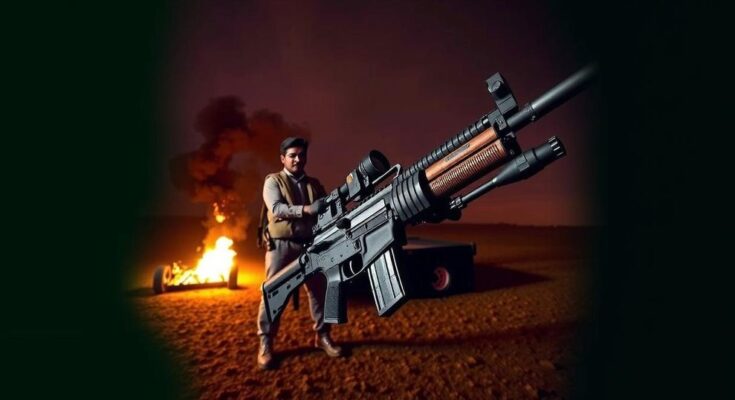The Sudan Liberation Movement reported that its forces intercepted a weapons convoy in Darfur intended for the Rapid Support Forces, accusing the UAE of providing military support. The operation yielded numerous combat vehicles and advanced weaponry. This incident underscores concerns about external influence in ongoing conflict dynamics, with the Sudanese government linking the UAE to the RSF’s military operations.
On November 21, 2024, the Sudan Liberation Movement (SLM) announced that its combatants within the Darfur Joint Force successfully intercepted a weapons convoy allegedly transporting arms from Chad to the Rapid Support Forces (RSF). This operation occurred in a desert region bordering Chad and Libya, where the RSF is said to utilize the expansive landscape for military logistics in Darfur. The SLM claimed the weapons confiscated consisted of various combat vehicles and advanced ammunitions, hinting at the RSF’s dependence on external support, notably from the United Arab Emirates (UAE).
The SLM’s statement emphasized its ongoing commitment to securing Sudan’s borders against arms smuggling and terrorist threats. Furthermore, videos released depicted the combat vehicles and weaponry obtained, alongside identification indicating connections to Colombia and the UAE. The Sudanese government has levelled accusations at the UAE for providing arms and hiring mercenaries to support the RSF, an assertion that raises concerns over the geopolitical dynamics involved in the ongoing conflict in Sudan.
The conflict in Darfur, which reignited in 2023, has seen the RSF, led by Mohamed Hamdan Dagalo, actively engaging in combat against various armed factions alongside the Sudanese military. The ensuing violence and humanitarian crises have spurred international attention. The SLM’s interception of the weapons convoy underscores the ongoing tensions and the perception that external actors, like the UAE, play a significant role in exacerbating the conflict through arms supplies and mercenary recruitment. Understanding the intricate web of alliances and confrontations is crucial in analyzing the humanitarian and security situation in Sudan.
The recent interception of a weapons convoy by the Darfur Joint Force illustrates the ongoing tensions between local armed factions and external influences in Sudan’s conflict. Accusations against the UAE for arming the RSF highlight the international dimensions of the conflict and raise questions about the ongoing stability and peace in the region. As the situation evolves, it remains crucial to monitor the response of the accused parties and the implications for regional security.
Original Source: sudantribune.com




